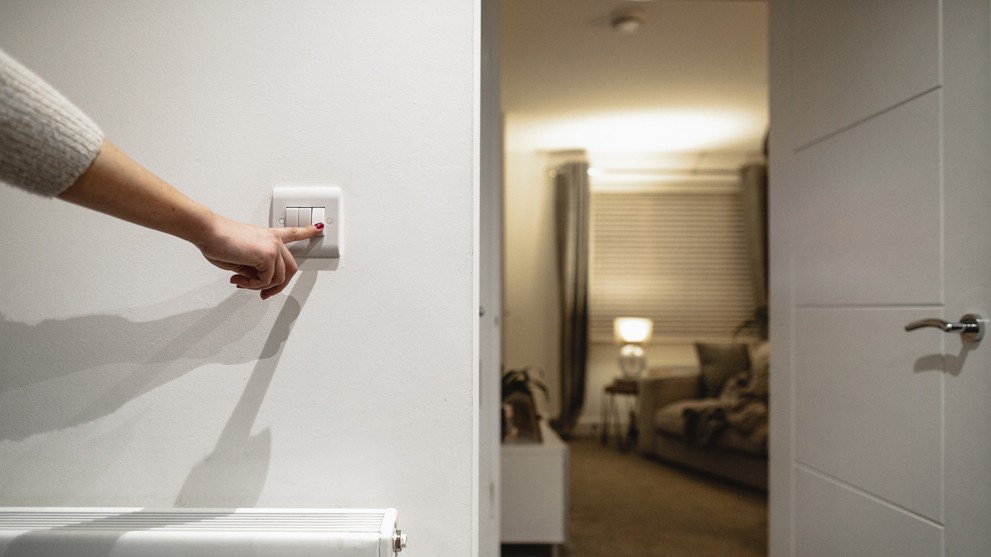Why is my Georgia Power bill so high?
Many factors outside your control can contribute to higher-than-expected electricity costs, including rate changes, seasonal energy use, insulation quality, and inflation. Knowing what you can do, and understanding the common causes of high power bills can help you make adjustments to save money.
Our Operational Costs
Reliability and regulatory compliance for a growing Georgia
We continuously invest in Georgia's electric grid to meet increasing demand for energy across the state and to provide the reliable service our customers deserve. Completing the new nuclear units at Plant Vogtle to meet the growing demand for energy, paying more fuel to generate electricity, and ensuring we comply with new environmental regulations are all reasons that can contribute to increases in electricity rates.
Your Energy Usage
Energy consumption and seasonal impacts
There is a combination of factors that go into your energy bill - mostly, how much energy you use, as well as the cost of electricity. Here are some things that may be causing an increase in your energy usage, which in turn is making your energy bill higher.
Login to My Power Usage in your online account to view your usage.
Your Account
Understanding your rate and your bill cycle
Knowing what your rate plan is and if it meets the needs of your household and lifestyle could mean the difference between your rate plan working for or against you. Making sure you’re on the right rate plan for you can save you money on future energy bills. It’s also helpful to understand your billing cycle and what was on your previous bill.
Frequently Asked Questions
Get the answers to some of the most commonly asked questions about why your bills might be higher.
What causes my bill to be increase in the winter?
Your energy usage may likely higher in the winter because you use your heating system more frequently and for longer periods to maintain a comfortable indoor temperature, which consumes a significant amount of energy.
Why have your rates gone up so much, so fast?
We are committed to making the long-term investments that will help to build a clean, reliable energy future for the state of Georgia. Some investments, like Plant Vogtle Units 3 & 4, ensure that our state has more options for always-on, carbon-free energy for the next 60-80 years. Other investments ensure that our grid is more reliable and resilient, like adding new battery energy storage systems, upgrading substations, and installing new power lines, poles, and smart devices that help minimize outages across our system.
Additionally, market increases to fuel costs and compliance with new environmental regulations have created higher operating costs that are reflected in our rates.
Is Georgia Power more expensive compared to other utilities?
Since 1990, Georgia Power customers have paid rates that are on average 15% below the national average rate.
We have a long history of keeping energy affordable, and we are committed to continuing this focus.
What are you doing to keep my rates down?
We work with the Georgia Public Service Commission to help ensure that our long-term planning decisions align with our commitment to deliver clean, safe, reliable, and affordable energy to every customer.
While our costs of doing business have increased, we help offset this by reducing operational expenses, managing storm cost recovery, and making smart financing decisions.
Why is my Georgia Power bill so high in the summer?
There are a combination of factors that influence the amount on your power bill – mostly how much energy you use and the cost of electricity. However, in the summer months (especially in the southeastern states), many people and businesses use more electricity to keep cool due to hot weather and high humidity.
Why do rates go up in the summer, just when I'm likely to use more energy?
It costs Georgia Power more to produce and deliver energy in the summer when demand is highest. As a result, the first 650 kWh used by customers each month cost slightly more during the hotter summer months than during the rest of the year.
I’ve heard you are making record profits? How is that fair when my bill is so high?
Under our state-regulated structure, what we are allowed to earn, our profit, is capped by the Georgia Public Service Commission. If we exceed this capped amount, funds are returned for the direct benefit of customers.

Little wins to help manage your energy better
Energy-saving tips, tools, and resources to help you manage your electric bill, reduce energy usage, and find energy assistance programs.